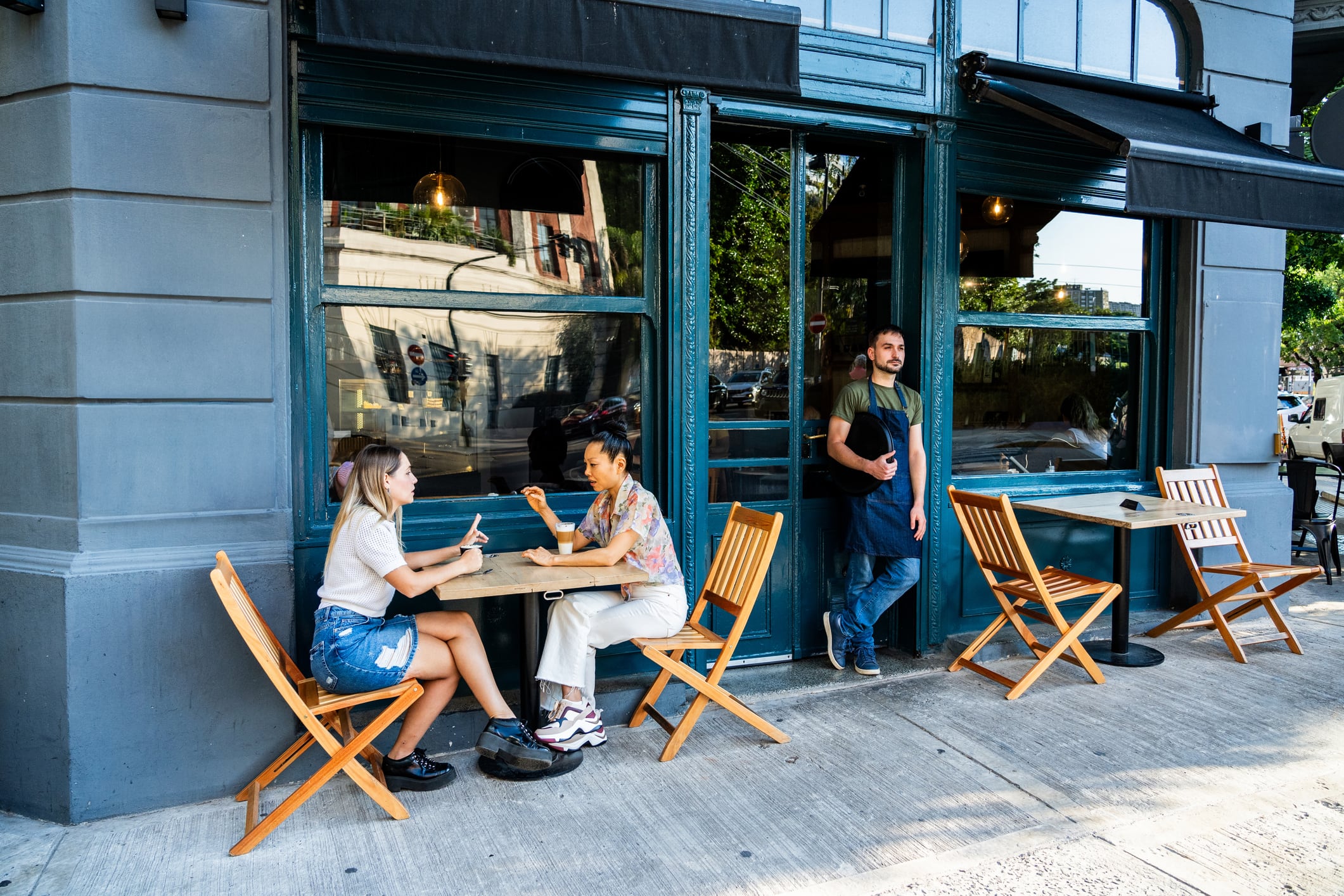What is a pavement licence?
Granted by the local authority, a pavement licence allows the licence holder to place removable furniture over certain highways adjacent to the premises that application was made for, for certain purposes.
When did things change?
The temporary system brought in during the pandemic was made permanent from 31 March 2024.
The easement for off-sales came to an end at the end of March 2025 so pavement licence holders will need to make sure they have off sales on their premises licence if they want their customers to be able to drink alcohol in the pavement licence area.
Which businesses are pavement licences for?
The licences are for businesses that use, or plan to use, premises to sell food or drink to be consumed on or off the premises, such as pubs.
What kind of furniture falls under the licence?
It permits the placement of furniture on the highway for this purpose. It should be noted that “A boards” are not included within the definition of furniture for this purpose and require separate authorisation. Some authorities (especially those outside of London) are often more relaxed about A-boards and will permit them, Harvey advised.
According to the Government website, furniture that may be placed on the pavement include:
- chairs, benches or other forms of seating
- tables, counters or shelves on which food and drink can be placed
- counters or stalls for selling or serving food and drink
- umbrellas, barriers, heaters and other items used in connection with consuming food or drink outdoors.
Applicants are required to provide information about the type of furniture that will be used and could be asked to provide a scale plan to show the area and the layout.
How does the process work?
Permission to place objects or structures on the highway are otherwise granted primarily under part 7A of the Highways Act 1980 and there is a minimum 28-calendar-day consultation period, the Government website states.
According to Harvey, the consultation period was increased from seven to 14 days and council has up to a further 14 days to determine the application after the consultation period.
Councils are able to grant the licence for a period they may specify up to a maximum duration of two years. The Government encourages local councils to be pragmatic and support local business by granted licences for two years unless there are good reasons not to. Some councils are only granting licences for as little as three months and are charging the maximum fees.
How much does an application cost?
Fees vary between local authorities as councils can now set their own for new applications and renewals.
They are capped at a maximum of £500 for new licences and £350 for renewals.
What happens if the licence is not adhered to?
There is no power to review a pavement licence but enforcement action can result in the revocation of the licence and possible criminal proceedings can be brought for obstructing the highway if the licence is not adhered to.
Other things to note
- It isn’t just fees that can vary between councils but also the licence duration.
- Poppleston Allen’s Harvey said national guidelines suggested a pavement should have a minimum clear width of 1.5m but some authorities insist on a wider clearance. Furthermore, there can be variation in application requirements.
- Some councils insist on granting the licence to a named person rather than a company. There is no procedure to transfer a pavement licence so if that person leaves, it might be necessary to apply for a new licence.




